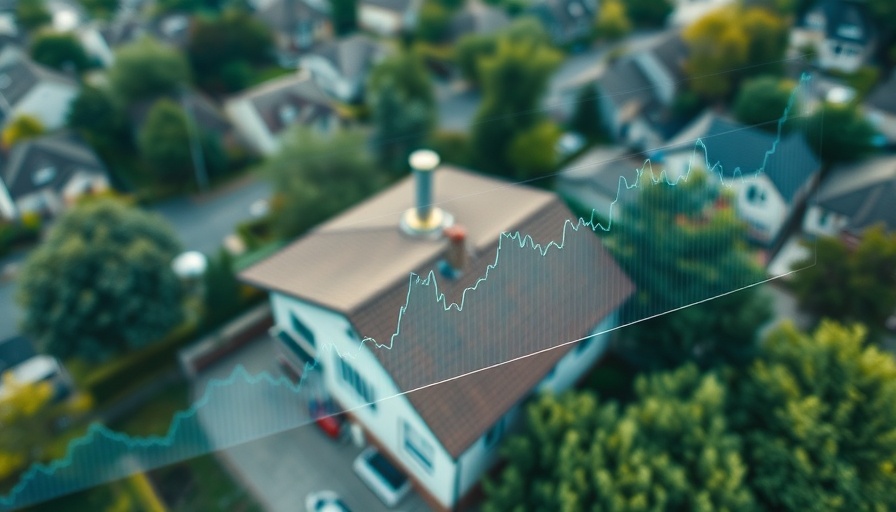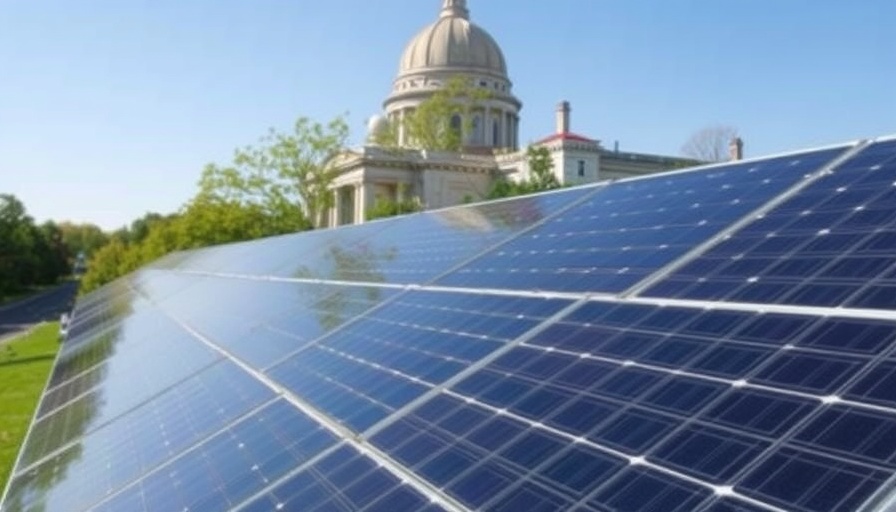
Understanding Solar Power for First-Time Homeowners
For many, purchasing a first home marks a pivotal life event. Homeownership brings a myriad of responsibilities, yet it also provides an opportunity for significant energy savings and sustainability through solar power. Making the decision to install solar panels can seem daunting, particularly for first-time buyers. However, embracing solar energy is not only a financially sound strategy but also a pathway to enhance your home's value and reduce your carbon footprint.
The Value Proposition of Solar Energy
Purchasing a home comes with expected costs, and energy bills are often a significant portion. According to various studies, investing in a solar system can lead to annual savings on electricity costs of up to 70%, reducing long-term expenses significantly. Furthermore, solar panels can increase your property's market value—by approximately 4.1% based on a recent Zillow analysis—making this installation a smart financial move as well as an eco-friendly one. For instance, if your new home is valued at $335,000, the addition of solar could enhance its appeal and resale value by around $13,735, which roughly covers half the installation costs of a typical solar system.
Financing Your Solar Installation
As a first-time homeowner, you may be wary of adding the cost of solar to your financial burden. Various financing options are available, including secured and unsecured loans. Secured loans might offer lower interest rates, but they typically require collateral—your home—which is a risk if you don’t stay long enough to pay the loan off. Unsecured loans, although generally higher in rates, don’t require such a guarantee and could be more suitable for those who might move before the loan is settled. Regardless of how you finance your solar system, understanding these options can help make the adoption of solar energy feasible.
Tax Credits and Incentives That Aid Transition
Another major consideration is the Investment Tax Credit (ITC) that allows you to deduct a significant percentage of your solar installation cost from federal taxes. Currently set at 26% but scheduled to decrease in future years, understanding how to leverage this credit can further lower the initial out-of-pocket cost. Timing your solar installation before the reduction takes effect could result in substantial savings.
Net Metering: Maximizing Your Savings
Understanding net metering is critical for first-time solar buyers. This billing mechanism allows homes that produce excess solar energy to send this back to the grid, receiving credits on their electricity bills. The arrangement enables homeowners to effectively use solar energy during peak hours and draw from the grid when necessary. The financial repercussions are markedly positive—if done correctly, you could eliminate or drastically reduce your power bill.
Practical Steps for Your Solar Journey
First-time homeowners should follow a structured approach when considering solar: assess your energy needs by checking prior utility bills and consider the physical characteristics of your roof to determine suitability for solar panels. Next, research accredited solar installers in your area to obtain multiple competitive quotes and thoroughly understand their warranties. Each of these steps will empower you to make an informed decision, ensuring that your investment is sound.
Common Misconceptions Around Going Solar
Many new homeowners harbor misconceptions about solar, such as the thought that solar panels only work in sunny climates. However, while sunlight levels do affect energy production, solar panels are engineered to function effectively even under overcast conditions. Another myth is that the upkeep of solar panels is burdensome; on the contrary, they require minimal maintenance with regular check-ups recommended for optimal performance. Understanding these facts clarifies potential advantages and dispels doubts.
Conclusion: Invest in Your Future with Solar Power
Transitioning to solar energy is not merely a trend; it’s a transformative step towards future-proofing your home, reducing energy costs, and positively impacting the environment. For first-time homeowners, the payoff of going solar can start within a few years, especially when considering the forthcoming rise in energy bills. Therefore, research your options, get quotes, and take ownership of your energy choices today!
 Add Row
Add Row  Add
Add 



 Add Row
Add Row  Add
Add 
Write A Comment